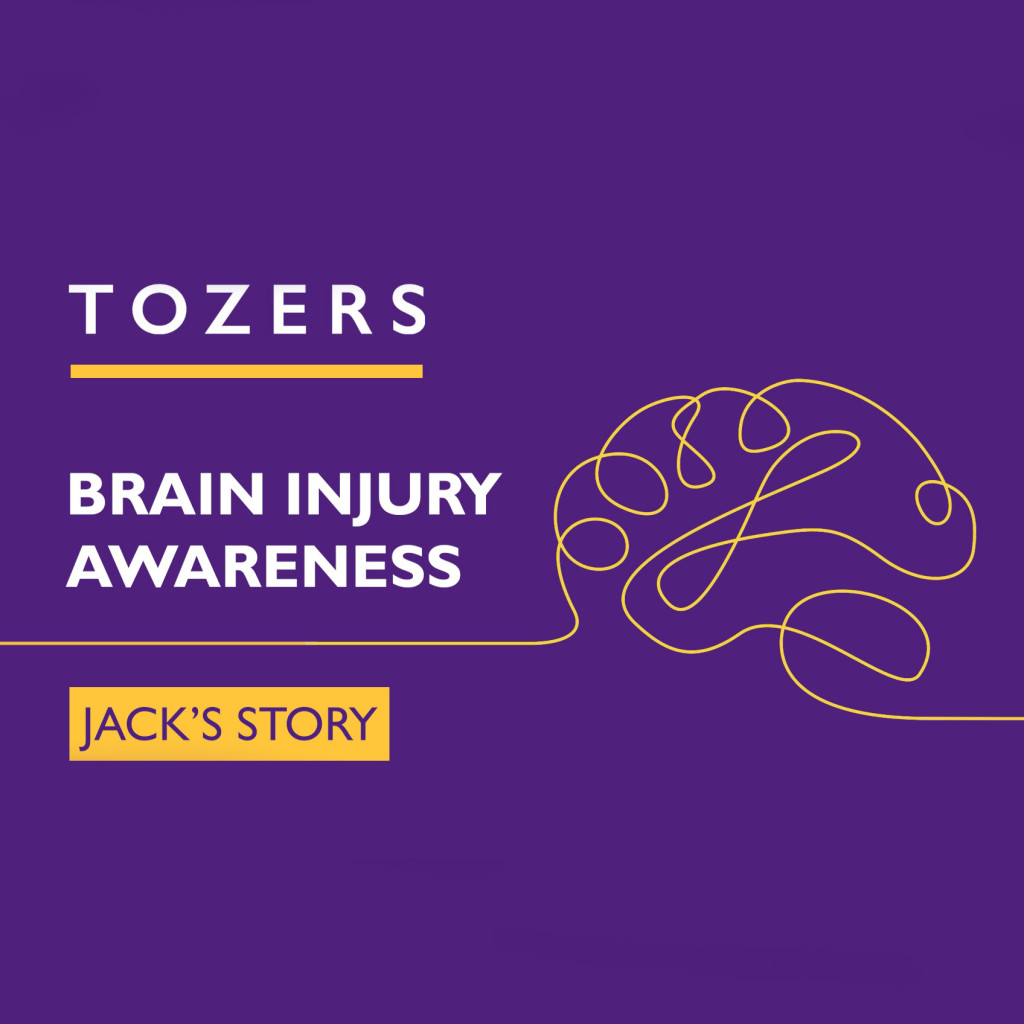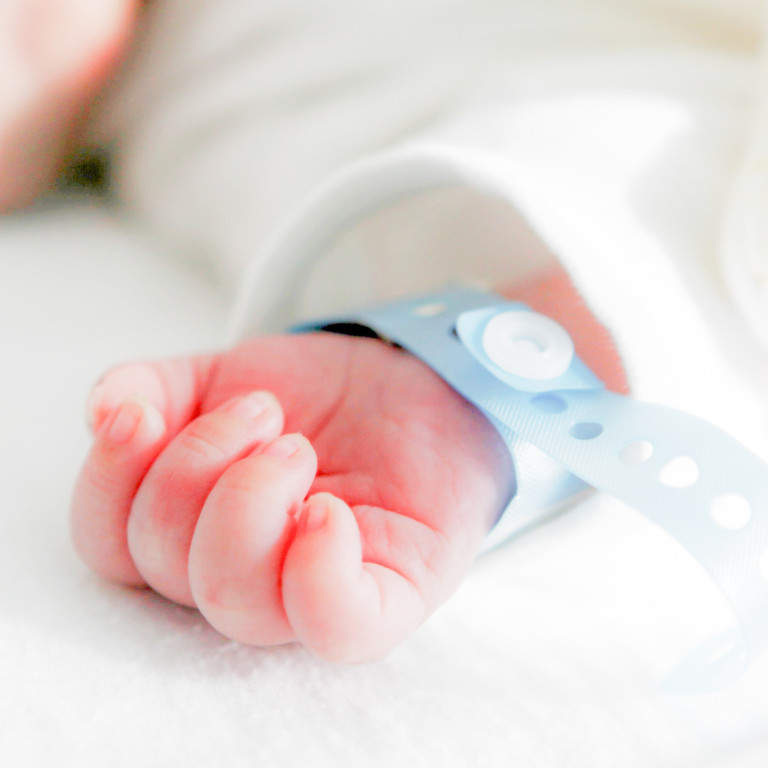We act for Jack who suffered a brain injury as a baby during his birth.
Jack had bleeding in the ventricles of his brain, called an intraventricular haemorrhage, which caused damage to the frontal lobe of his brain. This area of the brain is responsible for Executive Function.
Initially Jack made a good recovery from his injury, and it was hoped he would not have any long-term problems. The brain injury did not cause a physical disability and in the first few years, he met his developmental milestones. But by the time he was 3 years of age his brain injury began to manifest with hyperactivity and difficulties in concentration, information processing, and behaviour. As he grew older and demands and expectations of him increased with family life, social situations, and education, these difficulties were heightened. His behaviour became more extreme and at times unmanageable for his family.
There was very little support and understanding for Jack and his family and no treatment. His subtle brain injury was not recognised nor understood, and he was simply labelled as a normal but naughty and disruptive child. He had a turbulent time at school and was eventually expelled. His family had to fight for his needs to be recognised and for adequate provisions to be made by the Local Authority by employing an Educational Psychologist and Education lawyer. After a long battle, he was eventually granted an Education Health and Care Plan (EHCP), his expulsion was overturned, and a suitable school placement was secured so he could have a fresh start. Experts in neurological injury worked with teachers at the new school. Jack also received some medical treatment and therapy. Although there were plenty of ups and downs, particularly during the stressful time of GCSE finals, with professional support, and the support of his family, he managed to complete his education and achieve some qualifications.
What is Executive function?
The frontal lobe of the brain is responsible for Executive Function.
To put it simply Executive Function is the set of cognitive skills or mental processes which enable us to get things done. They include:
- Self-control & Self-monitoring
- Task initiation
- Organisation
- Working memory/Information processing
- Planning and prioritising
- Flexible thinking
- Emotional control
If the frontal lobe of the brain is damaged it will affect a person’s ability in these areas which can have a significant impact on a person’s capacity to be independent, work, form and maintain relationships, and function in everyday life.
What was the effect of the brain injury?
Jack struggled to organise himself or plan or initiate simple tasks. He would get distracted easily and lose focus giving up easily when things proved to be too difficult. He was hugely dependent upon his mum to care for him when his brothers were independent, and he even needed prompting to do everyday tasks like washing.
His mum explained to us that Jack was impatient, impulsive, and lacked inhibition. If there was a new console game or item of clothing he wanted, he couldn’t save or wait for it. He would demand expensive things and was unable to control his anger and aggression if he could not have them. He had caused damage to his home and belongings in violent outbursts. There was potential for him to place himself or others in dangerous or inappropriate situations.
Jack also had several psychiatric conditions caused by his brain injury which affected his behaviour. He had a close bond with his mum, as he relied upon her so much. The impact on parents after a child suffers a brain injury is something that we see very regularly. Jack had separation anxiety and worried about his mum. He suffered from anxiety and had irrational fears, particularly about his health. He had obsessive compulsive disorder, needing to follow certain routines and had nervous habits. He had low self-esteem and he felt vulnerable away from the home, being on his own or in unfamiliar places, and was at risk of depression.
Jack had a poor sleeping routine, often awake late in the night due to anxiety. He also suffered from cognitive fatigue.
It is difficult to predict the future with brain injury as the brain is not fully mature until the age of 25 years. However, the experts were concerned that Jack would not be able to live independently nor obtain employment, his anxieties as well as his brain injury proving to be an obstacle to his rehabilitation and progress.
What is cognitive fatigue after brain injury?
Cognitive fatigue is essentially extreme tiredness, not physical tiredness but mental exhaustion. It can happen when we work with our minds for extended periods of time. When you have cognitive fatigue, even the most basic task becomes a struggle.
Many people experience cognitive fatigue after brain injury, but the underlying causes are still not well understood.
It may be directly due to the damage to the brain structures but also may be due other factors such as needing to make more effort to think, concentrate or move due to the brain injury.
It can affect or worsen the difficulties associated with the injury such as forgetfulness, distractibility. It can also make daily activities more difficult and can contribute to people becoming socially isolated.
What is Jack doing now?
Jack’s mum instructed Tozers to bring a compensation claim on his behalf in relation to his injuries. The claim was successful and ultimately Tozers managed to secure a very significant compensation award for Jack, which is paid on annual basis for his whole life under a periodic payments order (PPO). Jack has a Court-appointed Deputy who manages his financial affairs, but who involves Jack in the decision-making process.
It took a number of years for the negligence claim to be concluded but early on interim payments were obtained which helped to put together a package of support and rehabilitation, to help Jack through education, and address his anxieties and psychological difficulties.
Now that the claim is over Jack is making good progress. He has a car and enjoys the freedom this gives him and with the assistance of his Deputy, he has bought his own home. His damages have ensured that he has support and an appropriate team of professionals to work with him and assist him to maximise his independence. He is interested in health and fitness and regularly attends the gym and plays football with friends and family.
How we can help
If you or your family have suffered because of medical negligence, we will help you to recover appropriate compensation and secure the future.






